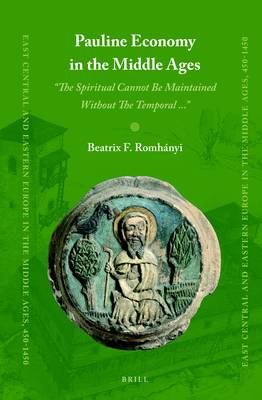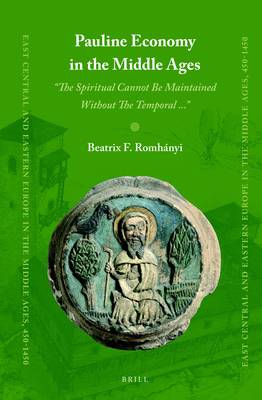
- Afhalen na 1 uur in een winkel met voorraad
- Gratis thuislevering in België vanaf € 30
- Ruim aanbod met 7 miljoen producten
- Afhalen na 1 uur in een winkel met voorraad
- Gratis thuislevering in België vanaf € 30
- Ruim aanbod met 7 miljoen producten
Zoeken
Pauline Economy in the Middle Ages
''The Spiritual Cannot Be Maintained Without the Temporal ...''
Beatrix F Romhányi
€ 204,95
+ 409 punten
Omschrijving
In Pauline Economy in the Middle Ages ''The Spiritual Cannot Be Maintained Without The Temporal ...'' Beatrix F. Romhányi examines the estate management of the Pauline order - the only religious community native to medieval Hungary.
Sources on the history, and especially on the economy, of the order have survived in exceptionally high numbers compared to other religious communities in Hungary. In the late Middle Ages, the order developed a unique estate management system. Based on the income of their landed estates and their privileges, the Paulines increasingly moved towards the capitalistic estate management around 1500, while donations, alms and annuities still composed a significant part of the incomes connecting the Paulines to the mendicant orders.
Sources on the history, and especially on the economy, of the order have survived in exceptionally high numbers compared to other religious communities in Hungary. In the late Middle Ages, the order developed a unique estate management system. Based on the income of their landed estates and their privileges, the Paulines increasingly moved towards the capitalistic estate management around 1500, while donations, alms and annuities still composed a significant part of the incomes connecting the Paulines to the mendicant orders.
Specificaties
Betrokkenen
- Auteur(s):
- Uitgeverij:
Inhoud
- Aantal bladzijden:
- 244
- Taal:
- Engels
- Reeks:
- Reeksnummer:
- nr. 62
Eigenschappen
- Productcode (EAN):
- 9789004424753
- Verschijningsdatum:
- 6/08/2020
- Uitvoering:
- Hardcover
- Formaat:
- Genaaid
- Afmetingen:
- 155 mm x 234 mm
- Gewicht:
- 512 g

Alleen bij Standaard Boekhandel
+ 409 punten op je klantenkaart van Standaard Boekhandel
Beoordelingen
We publiceren alleen reviews die voldoen aan de voorwaarden voor reviews. Bekijk onze voorwaarden voor reviews.








